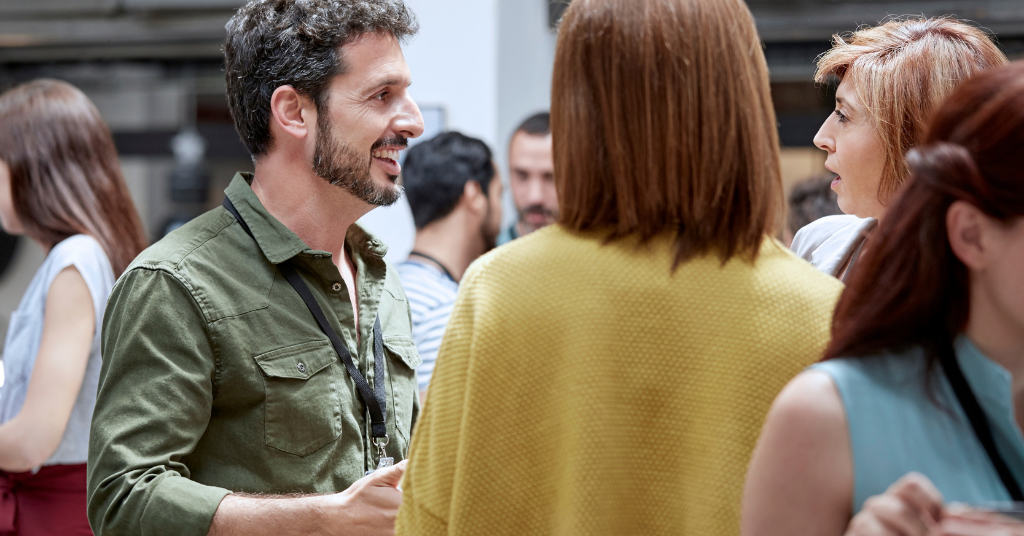
Deaf photographer shares moving stories in new book ‘Earshot’
June 28, 2019
Born to lead- Leadership in Children with Hearing Loss
July 2, 20195 everyday hearing loss challenges made a little easier

When you have hearing loss, it is inevitable that you’ll experience challenges, but, that doesn’t mean that there’s nothing you can do to make your life easier.
There is an old saying that “knowledge is power,” and, without resorting to any other cliches, it doesn’t hurt to be prepared, especially when going into certain situations. Here are 5 hearing loss challenges that can be made easier through advocacy.
Hearing loss challenges
1. When darkness falls
Light isn’t something that comes to mind when you think about hearing issues. However, trust me, when the light fails problems are often not that far behind. You see whether you realize it or not, if you are hard of hearing, the chances are that you rely on light more than you think in your overall daily communication.
You don’t have to know sign language to seek clarification when holding a conversation with someone.
We all use body language during conversations, communication is far more than words, we not only use such things as pitch and depth, but we also focus on the face. The human face conveys what is being experienced in a person’s emotional system. When facing another person while talking, we are constantly looking for clues as to the exact meaning of their words.
Also, people who have hearing loss tend to lip read, whether they’re aware of it or not. This is why you might find yourself really looking hard at someone’s face if you’re struggling to hear them. Because of these reasons if at all possible try to avoid areas when you go out which are too dark.
If you go to the cinema explain to whoever you’re with that you need to just concentrate on the movie, but will be happy to talk when you come out after.
Avoid those romantic candlelit dinners and, instead, opt for bright enough mood lighting. This way you’ll be able to eat and talk without missing out on a large part of the communication.
“Avoid those romantic candlelit dinners and, instead, opt for bright enough mood lighting.”
2. Not being tapped on the shoulder
One of the most annoying things, and, this happens almost every day, is when a person begins speaking to you, having not got your attention first. Those of us with hearing difficulties often find it almost impossible to hear the first word or two spoken. This is because our concentration is somewhere else.
It can also be linked to our technology. For example, my hearing aids have automatic volume controls. This means that if a voice suddenly speaks they will take a short time to tune that sound in. It might be a split second to the hearing aid, but to me, it can mean one or two words missing from a sentence. I am then forced to ask them to repeat what they have just said.
This can then lead to the other person wrongly assuming that either my hearing aids are not working or that they are not speaking loud enough.
Often this scenario ends in the other person shouting when there really is no need at all. Thankfully, if the person is a friend or relative or even if they are new to you, there is something which is very easy and, also happens to be extremely effective. Having explained that your hearing aid needs a moment to enable you to tune into a conversation, simply ask that should the person want your attention at any time, to firmly tap you on the shoulder.
Shoulder tapping is very well known within the Deaf community but tends to be underused in the hearing loss community.
3. Jump scare city
When you have hearing loss sounds can easily take on different meanings and it’s all too easy to become startled.
The problem is that hearing aids are not perfect. Despite how amazing they can be, they only operate really well when you are facing a person directly. The microphones fitted inside aids will often fail to distinguish background from the foreground and, this can lead to confusion.
To make things more comfortable for yourself try to make sure that you are always seated in a corner facing out when sitting in cafe’s, coffee shops and restaurants. Nothing can spoil an evening out like jumping out of your skin every few minutes because of not being aware of where people are coming from. Also, when going into a place for the first time, take a moment or two to familiarize yourself with the overall layout of the place. Try to arrange it so that you can sit away from the bar or shop counter.
“To make things more comfortable for yourself try to make sure that you are always seated in a corner facing out when sitting in cafe’s, coffee shops and restaurants.”
By doing this you can avoid having to fight through a barrage of noise from both customers and staff. As well as coffee machines, cocktail shakers, and other miscellaneous s sounds.
Just by knowing your surroundings and the placement of both people and objects, you can make your experience so much better.
4. Public announcements
Whenever you find yourself having to use crowded public areas where passengers congregate, such as airports, train and bus stations, here is something to bear in mind, if you would like to save yourself a headache or two.
Hearing people struggle with understanding announcers coming across public address systems at the best of times, doubt that? Just stand and watch your fellow passengers expressions, as they attempt to unravel whether what has just been said might apply to them.
Save yourself the hassle and, don’t even try to struggle with announcements, instead I do one of the following things.
Be certain to check online ahead of time any and all information that will be useful for your journey.
See if you can get an app for your mobile phone. The chances are that you’ll be able to get a free app which will allow you to keep up on any and all arrivals, departures and changes.
Read more: Tips for using public transportation with hearing loss
As soon as you come in through the entrance look around and find the information desk or kiosk. If you head over to them, they’re certain to have all of the up to the minute information and you will be talking one on one.
You should also look for illuminated signboards; these will show all important relevant helpful information.
5. Caring for hearing technology
We need to all be very thankful for the amazing hearing technology which we wear day after day and, which allows us a pathway into the hearing world.
Inside that small plastic shell is housed some very high-quality sophisticated equipment. These miniature computers can be delicate and need taking good care of.
Look after your hearing aids and, they will be free to do their job perfectly.
The good news, is that looking after a hearing aid is not rocket science. As long as you do one or two things right, they practically take care of themselves.
Be certain to change your batteries on a regular basis, as these can leak and, if this happens it can damage the aid. Also, always be sure to carry spare batteries, because you never know when you might need them.
Avoid moisture and be sure to always store your aids in a dry place. You can always get a dry cup. This is used with a drying tablet which removes moisture and, will keep it perfectly dry, when not in use.
Keep aids clean, be sure to wipe off any wax which has accumulated. On the device or mould. You can use a soft toothbrush or a cotton bud, do this very gently.
If you keep these 5 things in mind, you’ll easily be able to turn potential problems into challenges you are happy to meet head-on.
Living with hearing loss is not difficult as long as you are well prepared and you do a little forward thinking and planning.



